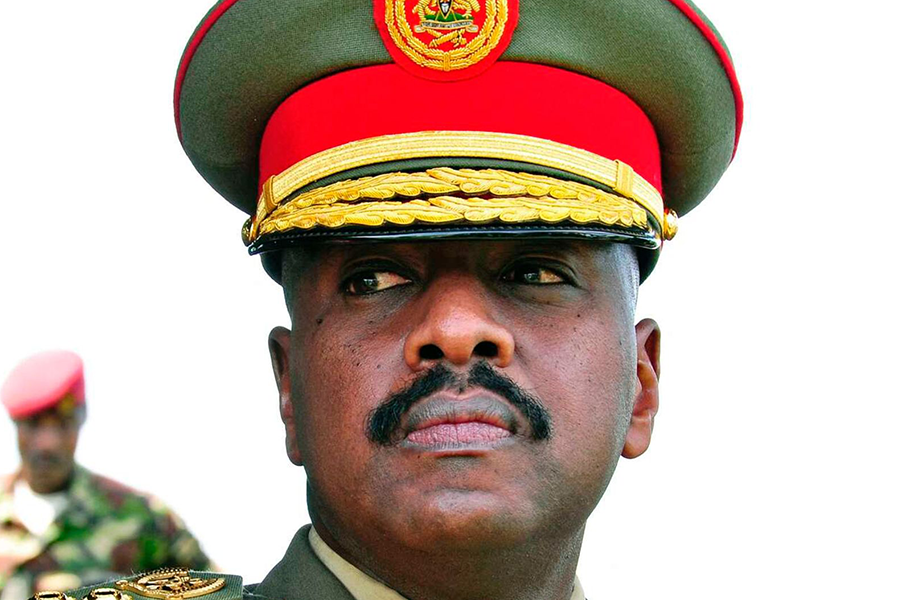
My Opinion | Sep 27,2025
Nov 12 , 2022.
Two weeks have passed since negotiators from Ethiopia’s federal government and the TPLF reached a deal that brought the war in Tigray to a lull. So have the talks moved from Pretoria to Nairobi and from the politicians who signed an agreement on cessation of hostilities to the men in uniform to trash out the fine details. The devil is indeed in the details.
Ethiopia’s army Chief of Staff, Berhanu Jula (Marshal), and his team met last week with commanders of the armed forces from Tigray under Tadesse Werede (General) to follow up on the deals their respective political leadership committed to on November 2.
Much hope is placed on the success of the Nairobi Round to help Ethiopia move forward, closing a chapter of a dreadful past that caused death to hundreds of thousands and forced millions away from their homes. One of the three mediators, former Kenyan President Uhuru Kenyatta, expressed his wishes to have the next rounds in Meqelle and subsequently in Addis Abeba. But so much depends on the outcome of the ongoing talks in Nairobi.
The signals coming out of the East African city last week were positive, although the hallmark of the talks between Addis Abeba and Meqelle has been secrecy. The world was surprised when chief mediator Olusegun Obasanjo announced the agreement between the two warring parties, for expectation was far lower. More surprising was the depth of the agreement, formally dubbed the Cessation of Hostilities Agreement (CoHA). It is a full-blown peace accord with details and timeline for implementations.
It is a much-needed truce that offered respite for a population deprived of essential services for two years. The people in the neighbouring states of Amhara and Afar have been devastated by the civil war, no less traumatised by the loss and destruction. The Pretoria truce ended the suffering of millions and presented a rare promise of a path for the eventual settlement of political differences through negotiations.
The agreement immediately compels the federal government to allow humanitarian aid provisions in food and medicine and resume vital public services. It should be encouraging to see this happening in areas under the federal government’s control. In the words of Redwan Hussien, national security advisor to the Prime Minister and the federal government’s chief negotiator, no less than 35 trucks of food aid and three trucks of medicines had arrived in Shire, a major town federal forces retook a few weeks ago. The positive outcome of the Nairobi Round will see the disarmament and demobilisation of “TPLF combatants”, clearing the way for federal institutions to take control of infrastructure and facilities such as airports and highways.
True to such negotiations, working out the follow-up details on implementation remains delicate and nerve-racking. The talks between the men in uniforms - indeed, all men - went on last week in Nairobi smoothly, with no public announcement of breakdown, giving hope that a final deal for durable peace is within reach. It is also pragmatic to expect the sticky issues to test the negotiating parties’ courage, resolve and commitment before they compromise. But they must help a country and its population overcome mainly self-inflicted sufferings.
The Pretoria accord imposes an obligation on the TPLF to disarm and demobilise armed combatants under its command within a month. It could be an ambitious goal for all sides to meet within the agreed deadline. The agreement also compels the federal government to take charge of the country’s international borders and prevent “incursions” from foreign forces, a quieter way of referring to Eritrean forces’ presence in Ethiopia. It also demands the federal government safeguard the constitutional order, an implicit concession to the status quo before the civil war broke out two years ago.
It will be no surprise if the negotiators in Nairobi get stuck over the sequencing of implementing these deals. Addis Abeba may insist on the disarmament of “TPLF combatants” before ensuring foreign and adversarial forces withdraw from the Tigray Regional State. Meqelle may get stubborn, demanding a guarantee for the departures of its arch-foes before laying arms down. Overcoming the chicken-egg dilemma needs the international community’s attention to keep pressuring both sides and the wisdom of mediators.
Ethiopia must not be allowed to slip back into the horrors of war.
The rounds in Pretoria and Nairobi remain crucial undertakings in pursuit of peace to bring the civil war to an end in the north. The plights Ethiopia faces are not limited there, though. A resurgent rebellion rages in the country’s central, south and eastern parts, where armed forces in Oromia Regional State captured towns battling federal forces. Civilians continue to face the consequences of war; many have been killed, and thousands are forced to flee.
This must stop. There will come no military solution to a war of visions. Any government that fails to recognise the precedence of politics over military measures risks facing protracted armed resistance and a war of attritions. This is especially true where multinational and multicultural countries like Ethiopia need a broader venue for negotiated settlements.
Initiatives and platforms that foster negotiated settlements are needed more than ever before.
Drawbacks to advancing and reaching negotiated settlements are mainly political and process factors. The warring parties should negotiate candidly - unlike their record so far - each taking the other’s concerns based on reciprocity. This could entail, among other things, the recognition and acknowledgement of the other. Public trust in who convenes negotiations is especially critical in a deeply polarised society. The process depends on the conveners’ integrity, impartiality, and public perception.
Whether the national dialogue commission Parliament legislated can serve as a platform for negotiated settlements remains an open question. Its leaders may enjoy all the attention and a federal budget in billions of Birr. However, the Commission has a defined mandate which may limit its role to facilitating dialogues among contending forces and social groups. However, it can also be a venue for adversarial parties to settle their political differences through dialogue, negotiations and compromise.
PUBLISHED ON
Nov 12,2022 [ VOL
23 , NO
1176]

My Opinion | Sep 27,2025

Viewpoints | Oct 26,2019

Verbatim | Oct 08,2022

Sunday with Eden | Sep 17,2022

My Opinion | Mar 05,2022

Radar | Jun 24,2023

Agenda | Apr 20,2024

Viewpoints | Dec 10,2022

Viewpoints | Jul 23,2022

Commentaries | Sep 21,2024

Photo Gallery | 171892 Views | May 06,2019

Photo Gallery | 162129 Views | Apr 26,2019

Photo Gallery | 151883 Views | Oct 06,2021

My Opinion | 136326 Views | Aug 14,2021

Dec 22 , 2024 . By TIZITA SHEWAFERAW
Charged with transforming colossal state-owned enterprises into modern and competitiv...

Aug 18 , 2024 . By AKSAH ITALO
Although predictable Yonas Zerihun's job in the ride-hailing service is not immune to...

Jul 28 , 2024 . By TIZITA SHEWAFERAW
Unhabitual, perhaps too many, Samuel Gebreyohannes, 38, used to occasionally enjoy a couple of beers at breakfast. However, he recently swit...

Jul 13 , 2024 . By AKSAH ITALO
Investors who rely on tractors, trucks, and field vehicles for commuting, transporting commodities, and f...

Oct 5 , 2025 . By NAHOM AYELE
In Meqelle, a name long associated with industrial grit and regional pride is undergo...

Oct 5 , 2025 . By BEZAWIT HULUAGER
The federal government is set to roll out a new "motor vehicle circulation tax" in th...

Oct 5 , 2025 . By NAHOM AYELE
The Bank of Abyssinia is wrestling with the loss of a prime plot of land once leased...

Oct 5 , 2025 . By BEZAWIT HULUAGER
The Customs Commission has introduced new tariffs on a wide range of imported goods i...